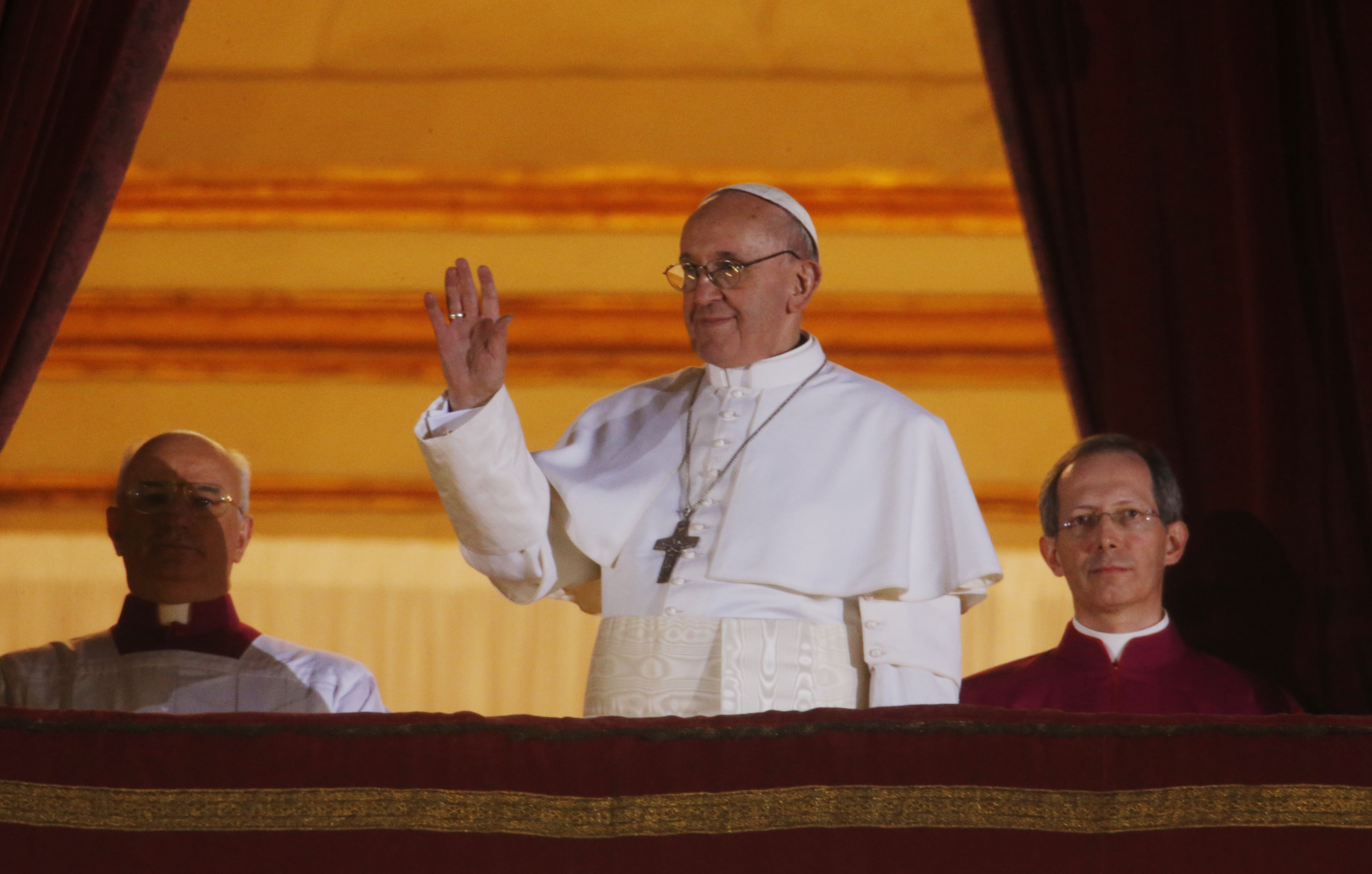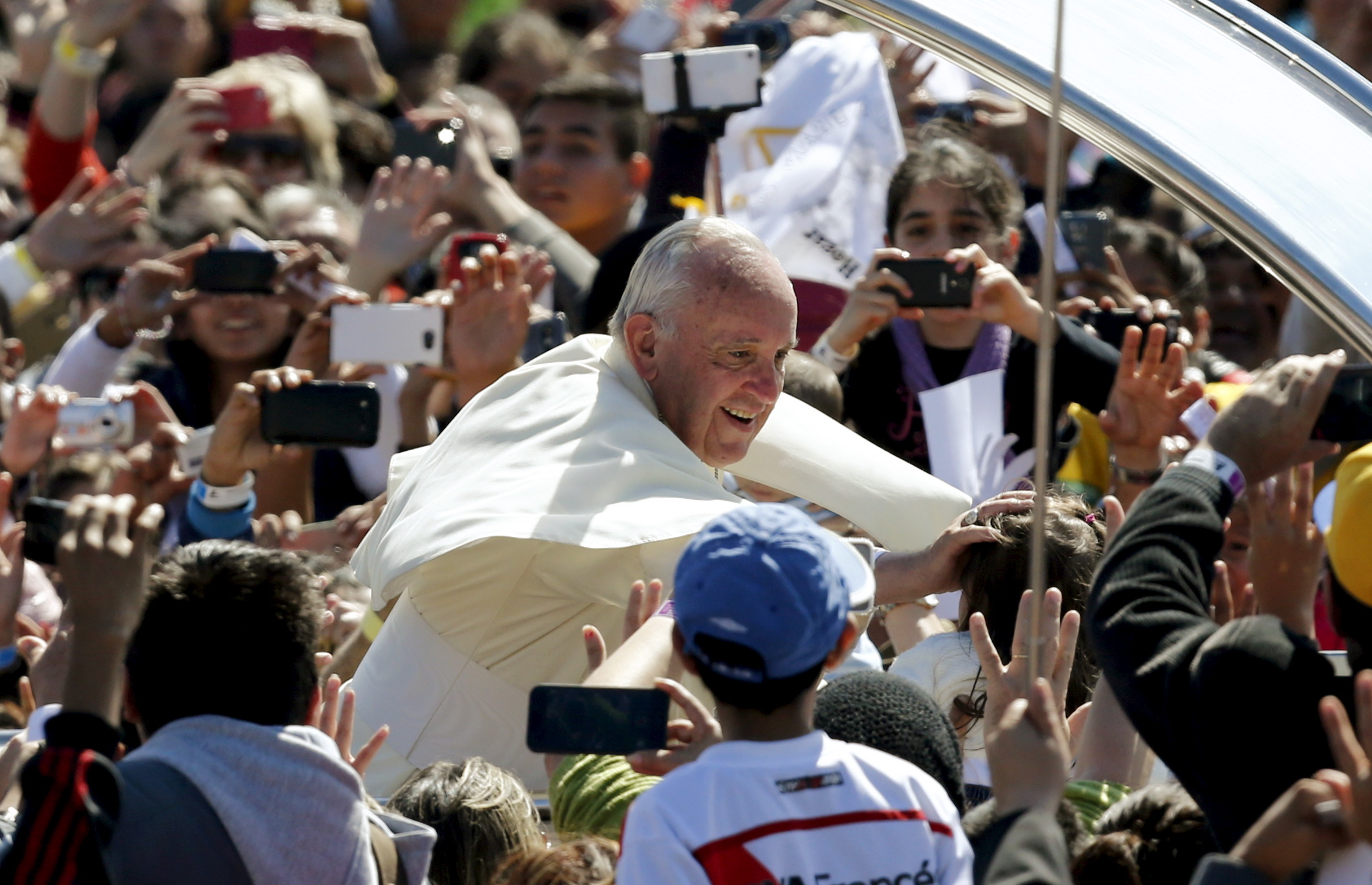Francis (1936-…) was elected pope of the Roman Catholic Church in 2013. He succeeded Pope Benedict XVI, the first pope to resign in nearly 600 years. Francis, an Argentine of Italian ancestry, is the first pope from Latin America and the first Jesuit pope. Jesuits are members of a religious order called the Society of Jesus. Francis is known for his commitment to social justice, especially for the poor; his humble lifestyle; and his traditional religious beliefs.

Francis was born Jorge Mario Bergoglio (pronounced HAWR hay MAH ree oh bur GOH lee oh) on Dec. 17, 1936, in Buenos Aires, Argentina, to an Italian immigrant family. In the 1950’s, Bergoglio attended the University of Buenos Aires, where he earned a master’s degree in chemistry. Bergoglio then entered the Jesuit seminary of Villa Devoto in Buenos Aires and began studying to become a priest. In 1958, he joined the Society of Jesus. He was ordained a priest in 1969. From the late 1950’s through the 1980’s, Bergoglio pursued further studies in Argentina, Chile, and Germany and received degrees in philosophy and theology. During the 1960’s, he taught literature, psychology, and theology at several educational institutions.

From 1973 through 1979, Bergoglio served as the Jesuit provincial for Argentina—that is, the head church official in charge of Jesuits. In 1976, military leaders overthrew the country’s government and established a dictatorship that lasted until 1983. That period in Argentina’s history became known as the “dirty war.” Government officials kidnapped, imprisoned, tortured, and executed thousands of people who opposed them, including some priests. Some critics claim that Bergoglio did not do enough to stand up to the military government. However, Vatican officials deny such charges, pointing out that Bergoglio actually protected many people during the dictatorship.
During the 1980’s, Bergoglio served as rector of the Philosophical and Theological Faculty of San Miguel, a seminary in Buenos Aires, and as a parish priest. Pope John Paul II appointed Bergoglio as an auxiliary (assisting) bishop of Buenos Aires in 1992. Bergoglio became coadjutor archbishop of Buenos Aires in 1997, and archbishop in 1998. A coadjutor usually succeeds the archbishop whom he serves. In 2001, Bergoglio was made a cardinal. From 2005 to 2011, he served as president of the Bishops’ Conference of Argentina. The College of Cardinals elected him pope on March 13, 2013. He took the name Francis, after Saint Francis of Assisi, who gave up all his possessions to work among the poor.
After becoming pope, Francis continued to uphold traditional church teachings. However, he emphasized mercy toward sinners and promoted the idea of a warmer, more welcoming church.
Francis’s notable actions have included setting up a Vatican tribunal in 2015 to judge bishops accused of covering up or overlooking sexual abuse of children by clergy. The same year, he issued an encyclical (letter to the entire church) calling for global action to stop environmental destruction, and simplified the process for annulling a marriage—that is, declaring it invalid. In 2015, Francis also became the first pope to address a joint meeting of the United States Congress.
In 2016, Francis became the first pope to meet with a leader of the Russian Orthodox Church. The Christian church split over differences in 1054 and developed into the Roman Catholic and Eastern Orthodox churches. Also in 2016, Francis attended a joint Catholic-Lutheran commemoration of the Reformation, a religious movement of the 1500’s that led to Protestantism.
In 2023, the Vatican issued a declaration that allowed clergy to bless same-sex couples, but without officially approving their relationship status. The church continued to hold its position that only a man and a woman could be married.
